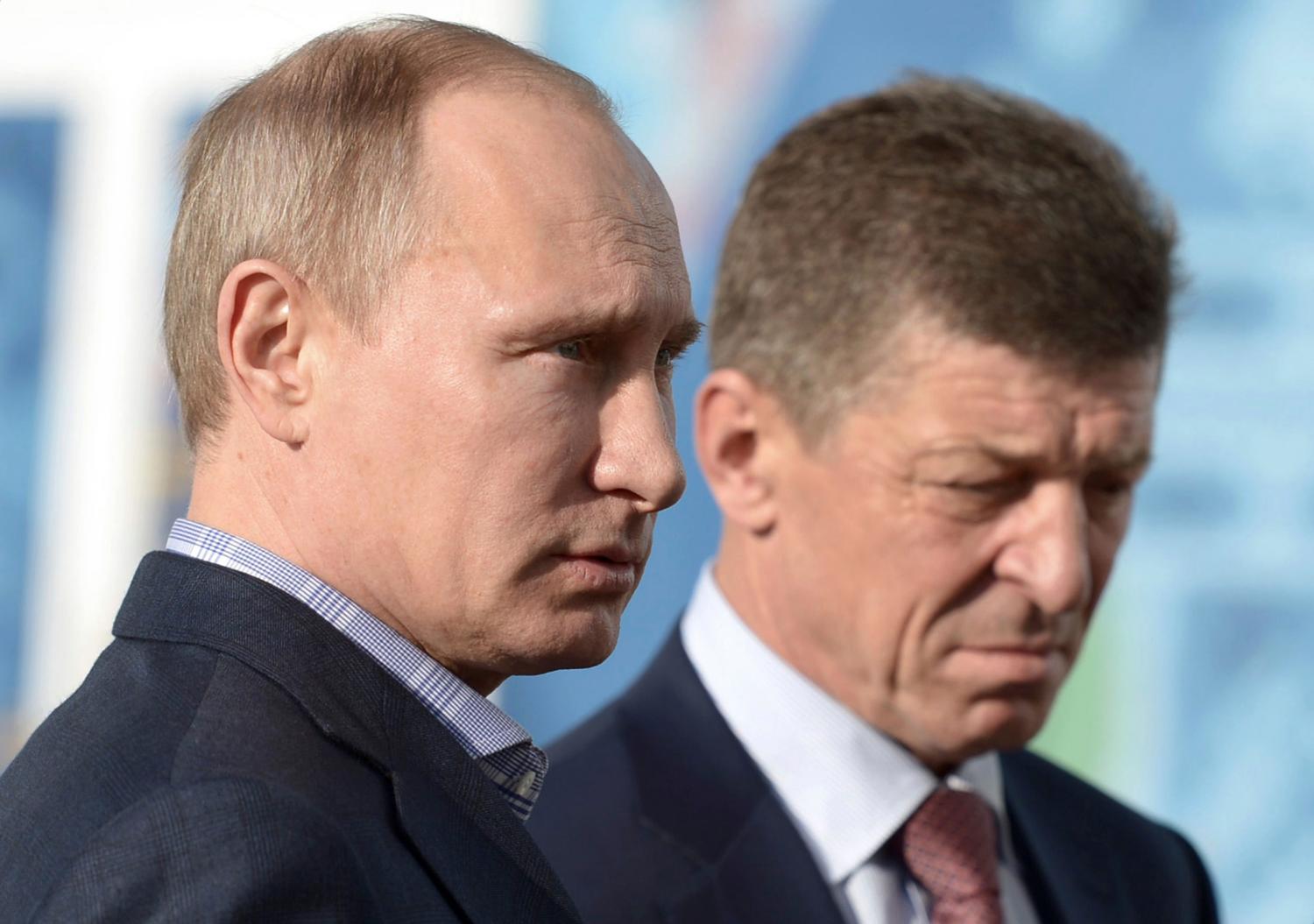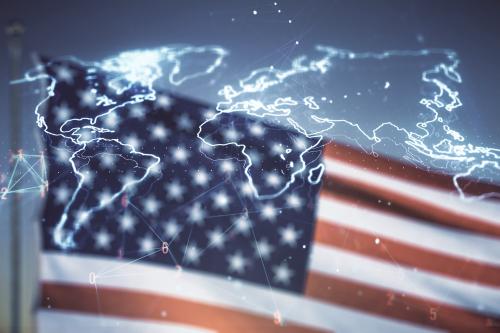To punish Moldova, Georgia and Ukraine for their efforts to deepen relations with the European Union, Putin’s Russia could resort to trade sanctions, gas cut-offs and other pressures. While U.S. leverage is limited, President Obama should develop a common line with the European Union that such Russian actions would have consequences for its relations with the West.
 |
MEMORANDUM TO: President Obama |
Summary and Recommendations
Vladimir Putin seeks to secure Russia’s primacy in its neighborhood and now views the European Union as a threat to that objective. In November, EU leaders held a summit in Vilnius with the Eastern Partnership countries—Armenia, Azerbaijan, Belarus, Georgia, Moldova and Ukraine. The EU initialed Association Agreements, including deep and comprehensive free trade area (DCFTA) agreements, with Georgia and Moldova. Azerbaijan and Belarus did not pursue agreements; Russia successfully pressured Armenia to drop its bid and Ukraine to defer the formal signature of its already initialed agreement.
Putin will not want to jeopardize the February
Sochi Winter Olympics, but Russia has threatened to punish Ukraine if it signs an Association Agreement and is also unhappy that Georgia and Moldova are drawing closer to the European Union. We should expect Moscow to follow through in some fashion. In past disputes with all three countries, Russia has cut gas exports or raised gas prices, imposed embargoes on imported goods, and stoked inter-ethnic conflicts. When Tbilisi pushed for a NATO Membership Action Plan (MAP), Russia’s retaliatory measures set the two states off on the path to the brief war that broke out in August 2008.
Georgia, Moldova and Ukraine look to the United States, not just the European Union, for support. A joint U.S.-EU stance has the greatest prospect of countering Russian actions. We recommend that you instruct the State Department to coordinate policy steps with the European Union and key members, including France, Germany, Italy, Poland, Sweden and the United Kingdom, to bolster the “targeted” states and assist them as Russia increases its economic and political pressures.
We should formulate joint messages to Moscow emphasizing our support for the rights of Georgia, Moldova and Ukraine to choose their own political course, and protesting behavior that is inconsistent with Russia’s OSCE and WTO commitments. While you will not be traveling to Sochi for the Olympics, a few European leaders may. This provides the opportunity for a coordinated message to Putin. June’s G-8 meeting is also scheduled for Sochi, and we should look for other opportunities to amplify our message between these two Sochi events.
We should build on Secretary Kerry’s successful December 4 visit to Chisinau and coordinate a series of high-level U.S. and European visits to both Moldova and Georgia for 2014. Ukraine presents a difficult case, given our concerns about democratic regression, but European leaders will travel to Kyiv and can take the initial lead there.
We recommend asking the State Department to develop a plan for tailoring current U.S. assistance to support the goals and implementation of the EU’s Association Agreements. The EU’s Eastern Partnership Program is the logical mechanism to engage this group of countries. Concrete programs and funding to promote energy security in Moldova and Ukraine are most urgent.
If the Eastern Partnership countries are prepared to implement serious reforms, the U.S. and EU executive directors at the IMF should encourage the Fund to adopt more generous programs, particularly if Russia imposes trade sanctions on the Association Agreement countries. We should also discuss with the European Union the possibility of bringing states with Association Agreements into the ongoing Trans-Atlantic Trade and Investment Partnership consultations.
Unfortunately, we have few credible sticks to deter Moscow from retaliating against Moldova, Georgia or Ukraine. In conjunction with the European Union, we could consider reviewing visa policies. The Russian political elite prizes its ability to travel freely. Any action that threatens to complicate that, such as returning to a policy of issuing Russians visas valid only for a single entry, would alarm Moscow.
Background
Putin perceives the European Union as a genuine strategic threat. The threat comes from the EU’s potential to reform associated countries in ways that pull them away from Russia. The EU’s Association Agreements and DCFTAs are incompatible with Putin’s plan to expand Russia’s Customs Union with Belarus and Kazakhstan and create a “Eurasian Union.” Putin’s goal is to secure markets for Russian products and guarantee Russian jobs. He also sees the Eurasian Union as a buffer against alien “civilizational” ideas and values from Europe and the West.
Putin views Ukraine’s delayed, but still possible, signature of an EU Association Agreement as the greatest threat to his Eurasian Union. If Ukraine adopts EU legislation and regulations, restructures its economy and systems of governance, and enacts European standards in all areas, Ukraine will become more European and, implicitly, less “Eurasian.” Its vulnerability to Russian economic and political pressure will decrease.
Putin may believe that he cannot afford politically to “lose” Ukraine. Without Ukraine and its demographic and industrial base, the Eurasian Union has limited clout. Having recently stressed the cultural and historic unity of Russians and Ukrainians as “one nation,” Putin could face a Russian nationalist backlash if Ukraine moves in a focused way toward Europe. Putin thus in December offered Ukrainian President Viktor Yanukovych a $15 billion loan and a significant cut in the price of natural gas in an effort to stop Kyiv’s developing relationship with the European Union. But Ukrainian public opinion and the massive demonstrations in Kyiv in favor of a European course limit Yanukovych’s freedom of maneuver and make a turn toward Moscow and the Customs Union difficult, if not impossible.
We see a high risk that Moscow will make good on its threats to Georgia and Moldova, and—should Yanukovych backslide on his December deal with Putin—Ukraine, and apply “payback” in the form of economic and political measures:
Ukraine: As the Vilnius summit neared, Moscow imposed trade embargoes on various Ukrainian exports to Russia. As it did in 2006 and 2009, Moscow could escalate to cut off gas shipments—even at the risk of endangering Gazprom’s ability to transit large volumes of gas through Ukraine to Europe. As a lesser step, Gazprom might demand that Ukraine stay current on its gas debts or make back-payments for gas that Ukraine was obligated to buy but did not take. More dangerously, Moscow could take actions that weaken the coherence of the Ukrainian state, e.g., by appealing to ethnic Russians in Crimea, or even by provoking a violent clash in Sevastopol, leading to the deployment of Russian naval infantry troops from the Black Sea Fleet to “protect” ethnic Russians.
Georgia: Moscow has previously embargoed Georgian mineral water and wine, cut airline flights, suspended visas, harassed Georgian migrant workers, and unilaterally recognized Abkhazia and South Ossetia after the 2008 war. Prior to Vilnius, Russia erected border fences between Georgia and the two regions. Russia could further harden these borders and provoke border incidents that result in new cycles of confrontation—especially before the fall NATO summit if Georgia renews and energetically pursues its MAP request.
Moldova: Before Vilnius, Russia banned Moldovan wine and threatened to cut off gas supplies (we should explore steps with the European Union to complete the gas interconnector from Romania to Moldova). Moscow could move to expel Moldovan migrant workers or block their remittances to Moldova. More dramatically, Russia could take steps to recognize Transnistria, fuel separatist aspirations in Gagauzia, and support politicians and parties running in the fall parliamentary elections who oppose closer association with neighboring Romania and the European Union.
Conclusion
The United States and European Union must send strong signals to Moscow that punishing Moldova, Georgia and Ukraine for pursuing their European ambitions has consequences for our relations. This will require deft diplomacy and close coordination on joint programs and responses, as the actual sticks that we can muster against Russian misbehavior are limited. A unified U.S.-EU response has the greatest likelihood of discouraging Moscow from aggressive actions and managing the consequences if Russia presses ahead.
The Brookings Institution is committed to quality, independence, and impact.
We are supported by a diverse array of funders. In line with our values and policies, each Brookings publication represents the sole views of its author(s).





